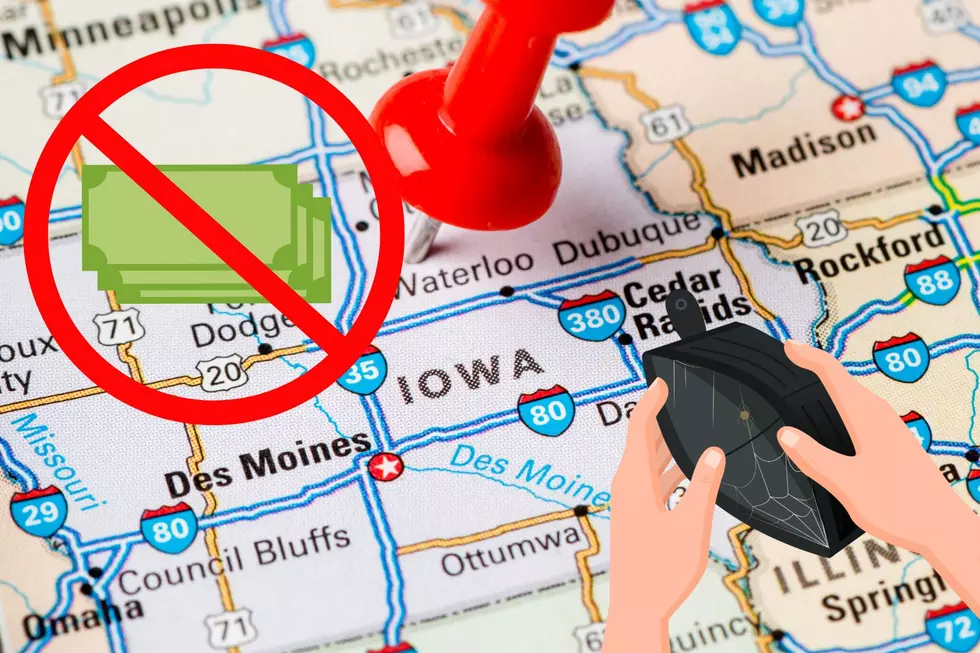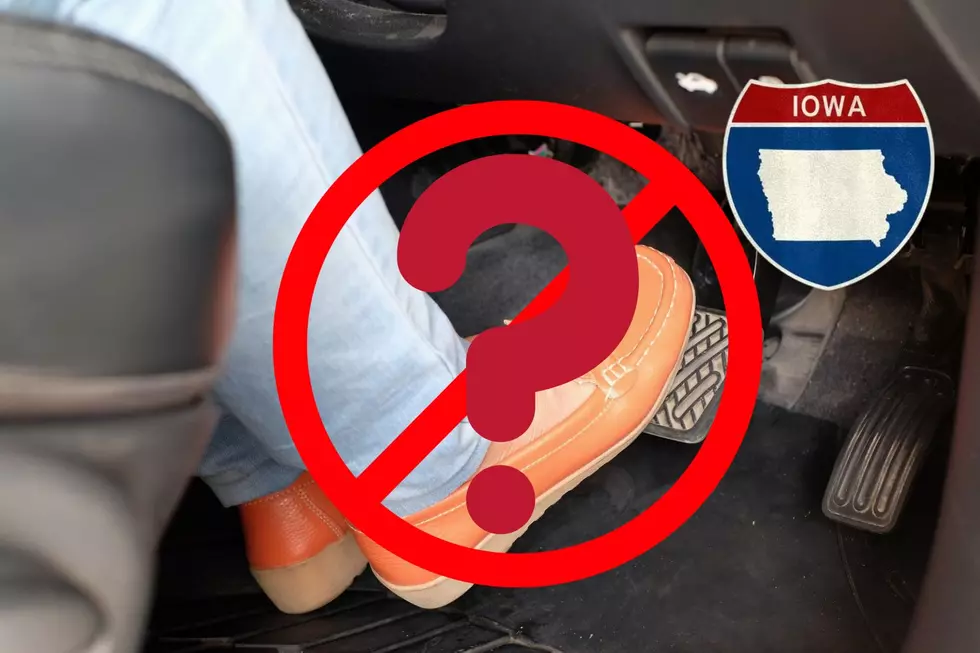
Kevin Feige on ‘Spider-Man: Homecoming,’ Miles Morales, and Spidey’s Future in the MCU
If you’re worried about SPOILERS for Spider-Man: Homecoming, you might want to avoid the question below about Donald Glover. Otherwise, this interview is spoiler-free.
If he was a comic-book character, people would describe Kevin Feige as mild-mannered. He greets people at the door of his junket hotel room with a big smile and a bigger handshake. While you settle in for your interview, he swaps funny stories about living in New Jersey (where he grew up) and superhero fandom. In the midst of a two-day whirlwind of press — and with seven more movies on his current production slate — he’s relaxed, cheerful, and chatty.
That might be because the movie Feige’s here to talk about, Spider-Man: Homecoming, is so good; a fun and exciting return to form for the title hero after two disappointing Amazing Spider-Man films in the early 2010s. Or perhaps Feige, like so many mild-mannered comic-book characters, harbors secret superpowers. He’s calm at the center of a massive production that combined the resources of two different studios, Marvel (the home of Spidey since his creation by Stan Lee and Steve Ditko 50 years ago) and Sony (who hold the rights to make Spider-Man movies). He has an uncanny knack for juggling a cinematic universe of dozens of characters and hundreds of creators and crew members. And he’s invulnerable to questions about the close-guarded secrets of his universe’s future. They bounce off him like bullets ricocheting off Iron Man’s armor.
This was the first time I’ve spoken with Feige, and even in our brief conversation, I got the sense that while the Marvel Cinematic Universe is a huge profit generator for his studio and its corporate owners at Disney, for Feige it is a legitimate passion project on a scale that very few filmmakers have ever attempted. And even as he’s approaching the 10th anniversary of the first Iron Man and the birth of the Marvel Cinematic Universe, he remains extremely passionate about his job. During our talk, we discussed what the MCU’s future looks like, and how Peter Parker (and maybe even Miles Morales) factor into it.
Why was it important to you to get Spider-Man in the Marvel Cinematic Universe?
Well, we thought there was a lot to do with Spider-Man that had never been done before; to showcase him for the first time actually inhabiting the universe in which he belongs. Stan Lee and Steve Ditko did not create a character that was a lone hero in Manhattan. They created a kid who got these extraordinary powers and had to balance going to school with doing the things that these other amazing heroes were doing who didn’t have to go to school, and who lived in almost literal ivory towers.
Now, sort of shockingly, 17 years since I first started working at Marvel — and my first day at Marvel involved going to Sony and meeting with Sam Raimi and Laura Ziskin for the first time, as the first draft had come in for [Spider-Man] — to now a point where we have Marvel Studios, and we have a cinematic universe with which to put him. That was the pitch to [former Sony chief and Spider-Man: Homecoming producer] Amy [Pascal]: It’s a Sony movie, that’s not changing. You’ve got the rights. But let us creatively produce it. And then we can put him into this universe. And suddenly everything becomes fresh and new.
That was what we saw. And I think it’s a testament to that character that so many of my favorite moments [in Homecoming] had never been done in a movie. Like him interacting with the other heroes. Like him lifting the rubble from The Amazing Spider-Man.
Issue 33.
Come on! I mean, even the Aunt May thing at the end. Those are all things that, even as I was a small part of the Sam Raimi movies I’d be like “This would be cool!” And there was so much else to do, they didn’t do them.
So there’s so many things that had never been done with him, especially putting him in this world. And we certainly didn’t have to — we have a lot of characters, we have a lot going on in the MCU. But we love Spider-Man, and we love the notion of showcasing what Stan Lee and Steve Ditko, and later guys like Dan Slott and Brian Michael Bendis, brought to that youthful enthusiastic, not-angst-ridden guy — for the most part. He’s had tragedies in his past, but he’s excited to be in this world.
So obviously the Marvel component makes this Spider-Man different. Was there anything else you were consciously like “We should do X or Y or Z” differently than the five previous films?
We were much more forward-facing than that, and looking at all the things that we really believed in, and all of the dynamics that incorporating him in our universe would provide for him.
If there are things we wanted to do differently, I think it’s little things like in those early Spidey films, the notion of Spider-Man swinging through New York City in glorious oners was awesome and unbelievably unique. We’ve kinda seen that, kinda done that now. We didn’t base any of our action sequences on that; we were much more intrigued with the notion of getting him out of the city, and sending him on a field trip to D.C., or having him go to a party in the suburbs where he’s investigating something and suddenly jumps off a roof and thwips heroically and it goes nowhere and he’s on a golf course and he can’t stick to anything and he has to run across the green.
So I guess those things came about because we were thinking consciously about how do we get him into a different environment to get different dynamics. But for the most part it was just about the first time Spider-Man has come home into the MCU.
Does this Spider-Man have an Uncle Ben? Or had an Uncle Ben?
I love that you asked the question that way. [long pause] The answer is we allow the audience to bring in what they know about Spider-Man and plug it in themselves. What really happened, how it really happened? He got bit by a spider, he was talking to Ned about it. “Spider’s dead, Ned.” He tries to start to tell the story to Tony Stark in Civil War.
Right, and Tony shuts him down.
So I do think there is some intriguing stuff for us to play with in future movies about what really happened — are we taking those things for granted? What did happen there?
But really it was about saying if there’s anything we can take for granted — because we spend most of our time at Marvel Studios not taking anything for granted. We’re almost done shooting a movie called Infinity War in Atlanta right now. And there’s a lot of stuff in that movie and a lot of characters in that movie. We sit with the [directors, Joe and Anthony Russo] and say “If you hadn’t seen any of the 18 movies before this, the movie’s got to work. Don’t take anything for granted.”
We do that on every movie. But we did say we were probably safe to assume that people know he got bit by a spider, he can shoot webs, he lives with his aunt.
Definitely. I enjoyed the nod to Peter’s love of photography with the opening of this movie; Peter Parker the photographer has become Peter Parker the guy who’s constantly recording his life on his cell phone. As a kid, I always loved the stuff with Peter at the Daily Bugle. Obviously, that’s not in Spider-Man: Homecoming at all. Do you think that’s a concept whose time has come and gone, or could it work at some point down the line in a sequel?
Maybe. Yeah, I think so. But I think it’s important to us that these movies inhabit the contemporary real world, with the overlay of our universe on it. That [Daily Bugle] doesn’t really exist anymore.
Right.
So I think it would be different — and there might be fun ways to play with it. And yeah, Jon Watts had that vision of “How do we bring our audience up to speed on what Spidey did in Civil War?” That was a case of don’t take it for granted that people have seen Civil War.
Right. I loved the Donald Glover part — he’s great in general, but I loved the part where he mentions his nephew — who comic-book readers know is Miles Morales. Do you think we could see his nephew somewhere down the line, or is that more of an Easter egg for fans?
All of those little things are just Easter eggs for fans until they’re something more than that. But anything that’s happened in the books is potential material for us. In the meantime, I think Miles is a big part of the animated movie that Sony’s making. But where we go ... we definitely want you to go “He’s there. He’s there somewhere.”
For a movie that was made by two studios, I think Homecoming feels very consistent tonally.
Oh wonderful. Good.
Let me put it this way: I’ve seen plenty of movies recently from just one studio that felt a lot more disjointed than this one.
[laughs]
So clearly this arrangement worked for this movie. And there are other Marvel properties that Marvel doesn’t control the film rights to. Do you think this is a model you could take to some of those other studios?
Well right now there’s no plans, no discussions at all about that. This was a very unique scenario, in large part thanks to Amy Pascal, and then [Sony chairman] Tom Rothman, the people at Sony, the people at Disney, who knew and really believed this was the best thing for Spider-Man. And egos and lawyers and all that other corporate stuff that you would think would hinder it, it was all very smooth. Sort of shockingly so. People find that interesting, and maybe unprecedented, but it all really came down — from my point of view — to a creative vision for what to do with this character.
I’ll never say never, because why would I after 17 years at Marvel when all these incredible things have happened? But no plans, and I think certainly with Fox and Logan and Deadpool they’re doing pretty well.
[laughs] True, they’re doing just fine on their own right now.
Yeah, they’ve got it. So I would never say never, but absolutely no plans. In the case of Homecoming, we said “Let us make a Marvel Studios movie.” And that’s what they did.
And you’re already working on a sequel to this film.
We are. Spidey’s a big part of Infinity War and Untitled Avengers and he’s already started shooting on those movies, and we have a lot of ideas for Homecoming 2, or whatever we call it. And, again, it’s exciting because what are all the things that we get to do with Spider-Man that have never been done before? The way Civil War defines Peter’s frame of mind at the beginning of Homecoming, the stuff that’s about to happen in the two Avengers movies will completely redefine everything for him in that next movie, Homecoming 2, which is also the first MCU film post-Untitled Avengers, which will be the conclusion of a 22-movie saga.
So that’s 22 movies in basically 10 years. It’s kind of crazy that it’s almost 10 years since Iron Man. How close is where we are now to the vision you had of the Marvel Cinematic Universe 10 years ago?
I would say it’s beyond the best case scenario of what we would think about. Certainly incorporating Spider-Man we would never have dreamed about. And the rolls of the dice that we would take at every turn, and hopefully continue to take, that audiences have responded to: Robert Downey Jr. as Iron Man, the notion of a Norse God being incorporated into that world, and then being brought into The Avengers, doing the space movie that we always wanted to do with a tree and a raccoon and an alien that doesn’t understand metaphors, bringing the mystic arts in, this weird wizard with a sentient cape. We always want to keep trying to do new things and different things and strange things. And I love nothing more than when we sit across from people and I can see them thinking “Oh, so this is the end of the road. Good luck!”
It’s actually my favorite, because that’s what we’ve been met with since we said we were going to start doing it ourselves. “Oh boy. IP holder making movies themselves, good luck!” I’m much more nervous when people start taking things for granted. “Oh it’s gonna be huge! Avengers is gonna be huge! Infinity War’s gonna be huge! Guardians 2’s gonna be huge!” Don’t take anything for granted.
You just rattled off all these absurd things you’ve done. Is there stuff still on the bucket list for the next 10 years?
Oh yeah, there’s way more. But really all I’m thinking about is the next seven movies — eight if you count Homecoming 2 that we have to complete in the next two and a half years.
Eight movies in two and a half years? That’s the official future Marvel lineup?
Uh, well, Ragnarok, Panther, Infinity War, Ant-Man and the Wasp, Captain Marvel, Untitled Avengers, Homecoming 2. So seven.
Oh, only seven. No big deal.
It’s keeping us busy.
Spider-Man: Homecoming opens in theaters on July 7.
More From Y105






